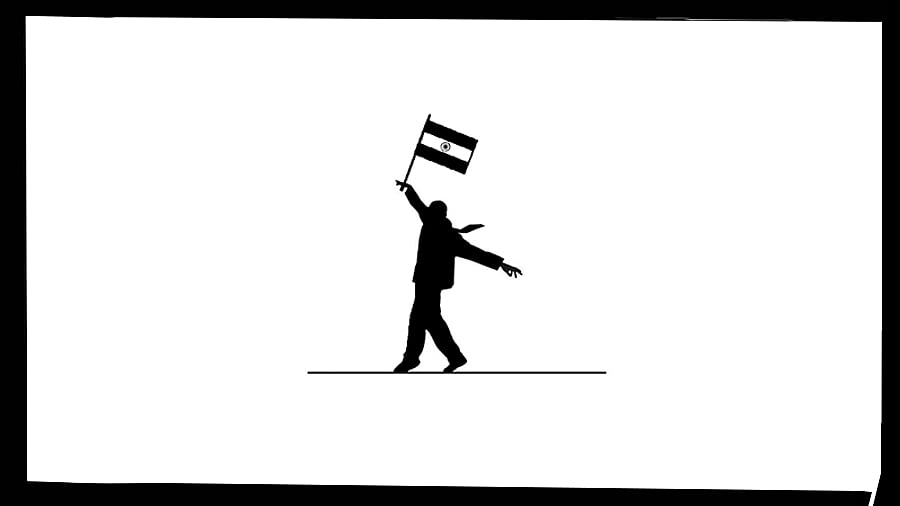
India’s pronounced tilt towards Israel in its ongoing conflict with Iran does not augur well for the future of New Delhi-Tehran relations. It could also undermine India’s significant strategic interests in West Asia, especially if the current conflict escalates.
India’s position on the conflict was reflected in two recent statements. The first, issued on June 13 after Israel launched ‘Operation Rising Lion’, its so-called pre-emptive military offensive against Iran, followed by another the next day. The June 13 statement said India was “deeply concerned” at the recent developments, urging both Israel and Iran to “avoid any escalatory steps” while advocating dialogue and diplomacy for de-escalation. If Iran expected any call for a ceasefire, let alone condemnation of the military strikes, there was none.
The following day, India distanced itself from a statement issued by the 10-member Shanghai Cooperation Organisation (SCO) expressing solidarity with Iran and condemning the Israeli strikes. India clarified it did not participate in those SCO discussions and reiterated its June 13 position.
Seen in conjunction with India’s latest abstention on a UN General Assembly vote for a ceasefire in Gaza, which was supported even by close Israeli allies like France, Germany, and the UK, the two statements underscore that the New Delhi-Tel Aviv strategic embrace is becoming tighter. It also dilutes India’s traditional backing for the Palestinian cause despite its declarations to the contrary.
India-Israel relations have surged over the last decade or so, impelled in no small measure by right-wing, nationalist governments in both countries. Prime Minister Narendra Modi’s visit to Israel in 2017 marked a watershed moment, ending Tel Aviv’s long wait for a visit at the prime ministerial level since the establishment of full diplomatic relations in 1992.
The flourishing partnership is built on a mutual belief in strategic gain. There is expansive cooperation in defence and security, with Israel proving to be a reliable partner in meeting India’s arms requirements in times of need, though it charges top dollar. It provided India with crucial defence equipment during the 1999 Kargil war and the more recent eastern Ladakh stand-off with China. Even during
Operation Sindoor against Pakistan last month, India extensively used Israeli kamikaze drones and air defence missile systems.
India-Iran relations have remained strong over the decades despite the latter being treated as a pariah state by the West. They have even remained steadfast despite the criticism directed at India over Kashmir and its treatment of minorities by Iran’s Supreme Leader, Ayatollah Ali Khamenei. But under military attack now, Iran will undoubtedly be displeased with New Delhi’s pro-Israel stance. While New Delhi in the past skilfully balanced its ties with Tehran and Tel Aviv, its latest actions favour Israel.
This could strain India’s relations with Iran and have broader geo-strategic consequences. The current conflict, if not contained soon enough, will adversely impact peace and stability in the wider region including the Gulf which is now considered part of India’s extended neighbourhood.
This, in turn, could directly impact India’s strategic interests, be it for energy security or regional connectivity. The Gulf region provides substantial remittances from the nearly nine million-strong Indian diaspora and one from where India is seeking foreign investments. India was forced to look for alternatives to Iranian oil in 2018-19 after crude imports stopped from there for fear of inviting US sanctions. If Iran now decides to block the Strait of Hormuz, this would further disrupt India’s oil supplies from the region.
The Chabahar fix
The Indian position would also entail a lot of explaining to the wider Arab world, which has expressed support for Iran even though many of them have their differences with Tehran. India, after all, has engaged in vigorous outreach to the Gulf nations over the last decade. The country’s plans to develop the strategically located Iranian port of Chabahar could also be jeopardised. India sees the port as a “trade artery”, providing it with access to Afghanistan and the land-locked Central Asian countries while bypassing Pakistan. Chabahar is also a gateway for connectivity up to northern Europe via the International North-South Transport Corridor (INSTC), the multimodal transport network project.
With Chabahar’s development already severely impeded due to US sanctions on Iran, the current conflict, if long-drawn, will hamper its progress further. This would be a huge setback for India, which signed a 10-year contract last year to operate the port, with the Indian Ports Global Limited (IPGL) pledging a $120 million investment. IPGL has been operating the Shahid Beheshti terminal at this port since 2018, though the port can only flourish when Iran is free from sanctions.
Another ambitious connectivity project to boost trade and transport, the India-Middle East-Europe Economic Corridor (IMEC), too is unlikely to take off if the region remains mired in prolonged turmoil. While India may currently see greater benefits accruing from its close ties with Israel, abandoning its traditional balancing act between these two arch-foes could imperil New Delhi’s strategic stakes in the region. It would do well to remember this.
(The writer is a senior journalist)
Disclaimer: The views expressed above are the author's own. They do not necessarily relfect the views of DH.